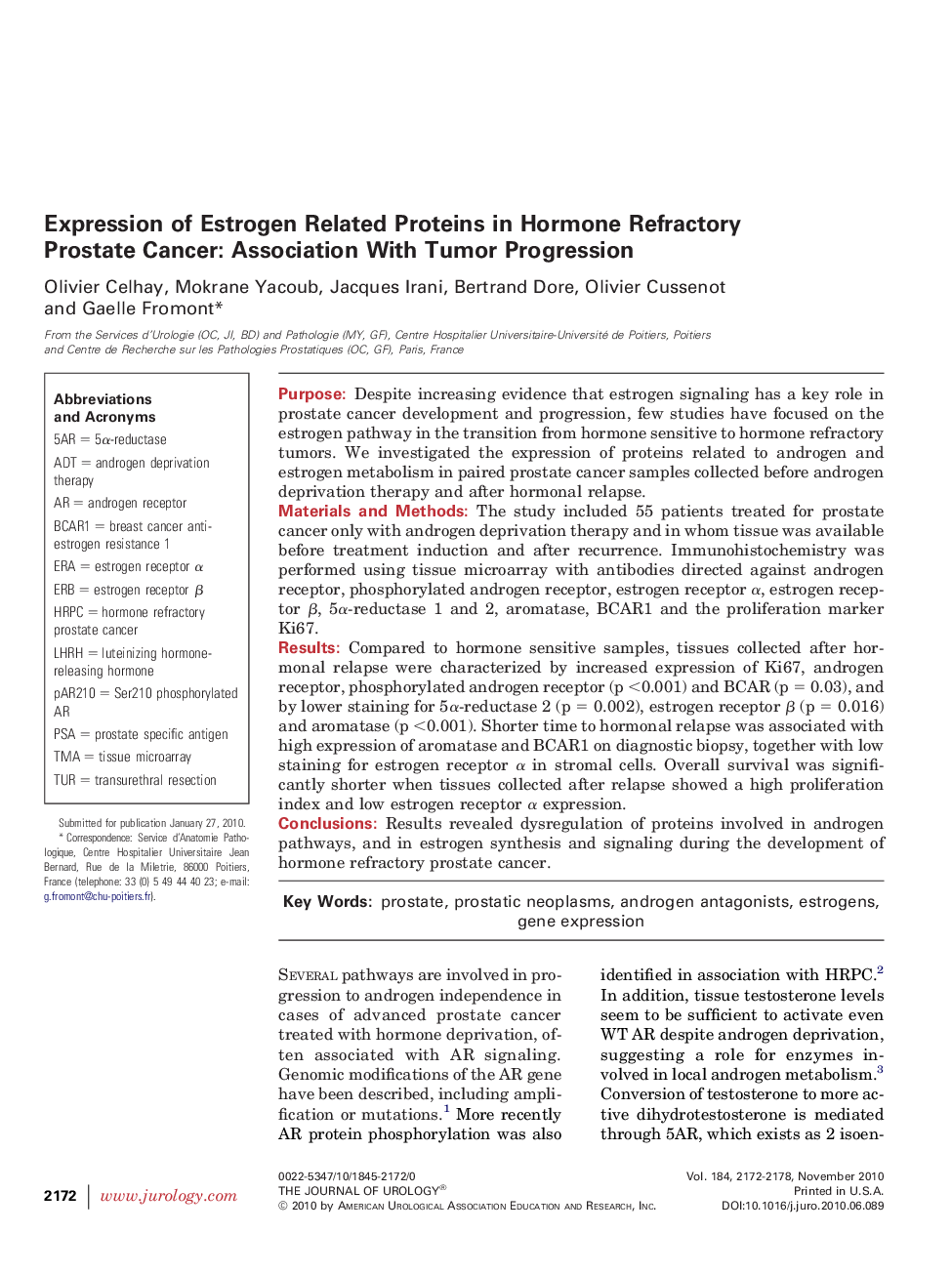| Article ID | Journal | Published Year | Pages | File Type |
|---|---|---|---|---|
| 3871694 | The Journal of Urology | 2010 | 7 Pages |
PurposeDespite increasing evidence that estrogen signaling has a key role in prostate cancer development and progression, few studies have focused on the estrogen pathway in the transition from hormone sensitive to hormone refractory tumors. We investigated the expression of proteins related to androgen and estrogen metabolism in paired prostate cancer samples collected before androgen deprivation therapy and after hormonal relapse.Materials and MethodsThe study included 55 patients treated for prostate cancer only with androgen deprivation therapy and in whom tissue was available before treatment induction and after recurrence. Immunohistochemistry was performed using tissue microarray with antibodies directed against androgen receptor, phosphorylated androgen receptor, estrogen receptor α, estrogen receptor β, 5α-reductase 1 and 2, aromatase, BCAR1 and the proliferation marker Ki67.ResultsCompared to hormone sensitive samples, tissues collected after hormonal relapse were characterized by increased expression of Ki67, androgen receptor, phosphorylated androgen receptor (p <0.001) and BCAR (p = 0.03), and by lower staining for 5α-reductase 2 (p = 0.002), estrogen receptor β (p = 0.016) and aromatase (p <0.001). Shorter time to hormonal relapse was associated with high expression of aromatase and BCAR1 on diagnostic biopsy, together with low staining for estrogen receptor α in stromal cells. Overall survival was significantly shorter when tissues collected after relapse showed a high proliferation index and low estrogen receptor α expression.ConclusionsResults revealed dysregulation of proteins involved in androgen pathways, and in estrogen synthesis and signaling during the development of hormone refractory prostate cancer.
